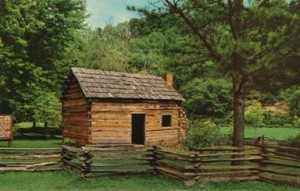In 1701 William Penn first laid out the farms surrounding his new town of New Castle. Then, it was part of his colony of Pennsylvania (later the Three Counties would become the new State of Delaware on June 15, 1776 – now known as Separation Day). Wisely, Penn planned for the resource needs of the colony by setting aside over 1,000 acres of land as a trust in common, as he stated in his charter, “to lye in Common for the accommodation of the Inhabitants of the Town of New Castle for their onley use and behoof forever.” And it wasn’t just benevolence that motivated Penn.
Penn, and his Quaker brethren, came to America to find freedom. Their brand of freedom was rooted in strong religious convictions, but they were also motivated by bitter experience. These religious dissenters had been hounded and persecuted in their native land. They knew that real freedom was necessarily rooted in more than noble words and stubborn opposition, but would have to be founded on true independence from that system of commerce and government that sought to control all the aspects of their lives. Penn, unlike other founders of American colonies, knew that resource independence was a vital component of colonial success. The “Common” he established for New Castle was to provide for that independence. In documents we find that wood was a vital resource from those lands for both construction needs and energy resources for heat and cooking. Later, farming would provide the food and fiber for the sustenance of the town. Recently I’ve been a part of a major project to rekindle the vision of William Penn in the 21st century.
The Trustees of New Castle Common continue to this day as a vital force in the life of the Town of New Castle. ( http://www.newcastlecity.net/city_gov/trustee.html ) The last remaining farm of the Common established by Penn has become the focal point of a new project to update Penn’s vision for today’s world. In conjunction with Delaware Greenways, Inc. the Trustees are revitalizing the farm, restoring the old house and buildings, have opened a farm market (Tract 6 Market, after the survey number of the farm from 1701) and will be establishing a CSA and several cooperative programs of education and training with the local school district. In short they are bringing back Penn’s idea of farmland in support of the prosperity of an urban center. And we all thought the trends of local food, supporting local agriculture, and linking farms to community were something new we had thought up! Not really – these ideas are more than 300 years old! There will be good, fresh food for the residents of New Castle coming from land preserved in common for their benefit. People can once again walk (or ride bicycles) out to the Penn Farm, talk to the farmers, enjoy the views – and take home dinner! But as great as all this may be, there’s more to the update of Penn’s plan than just some fresh corn! There’s the matter of independence.
In the last ten years or so we’ve learned from bitter experience the costs of dependency. Most dramatically, dependence on others for our energy resources has cost us our wealth and the lives of our country’s youth. More importantly, our own belief system has been assailed and assaulted by those who hold us hostage by their control of petroleum. We could stand on the verge of another pernicious web of dependency surrounding our food and agricultural products. As we let more and more of our country’s farmland slip away the specter of greater dependency on foreign food supplies becomes more real. William Penn would warn us sharply about such dependency. Penn would counsel that we set aside land, preserve it for the future health and happiness of our communities, for our “onley use and behoof forever.” Penn would tell us that if we want to pursue our own quest for freedom and independence as a nation in the 21st century, we must also pursue our independence in food and resources. That still sounds like good advice after 310 years!



